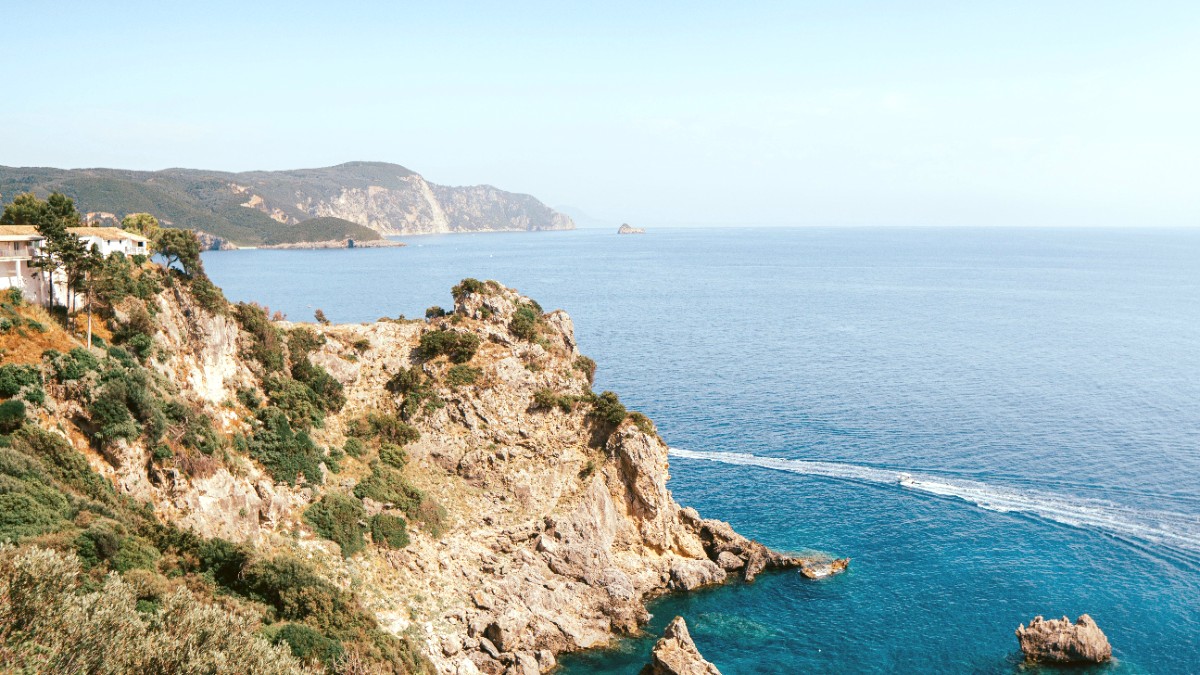
Ionian Islands, Greece
Cosmote, Vodafone, and Wind (now Nova) are the main mobile network providers in Greece. Tourist SIM cards are available at official provider stores in Corfu Town and some kiosks. Passport identification is a condition for registration. A local SIM card appears cost-effective for data and calls compared to international roaming, especially for non-EU travelers. Prepaid data packages maintain affordability and provide good coverage across the island, for navigation and communication.
Wi-Fi maintains wide availability and general reliability in hotels, apartments, cafes, restaurants, and bars throughout Corfu Town and major tourist areas. Limited public Wi-Fi hotspots exist. Hotel Wi-Fi is usually free for guests, but speed and reliability can vary. The Hellenic Post (ELTA) serves as Greece's national postal service. The main post office in Corfu Town finds location near Spianada Square. Stamps purchase at post offices or some kiosks.
The official language stands as Greek (Ελληνικά). English is widely spoken in tourist areas, including hotels, restaurants, shops, car rentals, and major attractions. In more remote villages, English proficiency may demonstrate limitations. The Google Translate app (download offline Greek language pack) offers a translation tool. A Greek phrasebook for basic communication proves helpful.
Mastering a few basic phrases enriches your interaction with locals and generally finds a warm reception.
Non-tourist shops generally open Monday, Wednesday, and Saturday mornings (e.g., 9 am-2 pm). Tuesday, Thursday, and Friday often feature split shifts (e.g., 9 am-2 pm and 5 pm-9 pm), with closures on Sundays. Tourist shops in Corfu Town and resort areas typically operate longer, continuous hours, frequently from 9 am to 9 pm or later daily during high season.
Banks typically operate Monday-Friday, from 8 am to 2 pm, with closures on weekends and public holidays. ATMs maintain wide availability in Corfu Town, major villages, and tourist resorts. Most accept international debit and credit cards. Look for signs indicating Visa, MasterCard, and Maestro acceptance. Priority Pass for lounge access. Compensair for flight compensation assistance.
Public Holidays lead to bank, post office, and government service closures. Shops and restaurants may have reduced hours or close completely, especially in non-tourist areas. Outside the high season (November-April), many hotels, restaurants, and tourist-oriented businesses in resorts outside Corfu Town close down. Services and transport may operate with significant reduction. Plan accordingly for visits during these months.
Many services alter hours or close entirely on these dates.
Saint Spyridon's Name Day (Dec 12) and Processions for the Saint occur on specific dates throughout the year. These mark important local celebrations with unique traditions and often affect local business hours.
During the off-season, many tourist-focused establishments close. Confirm opening hours directly with businesses if visiting outside peak months.
Adhering to local customs enriches your travel and shows respect for the culture.
A handshake serves as common for formal greetings or when meeting someone new. Close friends and family often greet with a kiss on each cheek. Verbally, use "Yiasas" (formal/plural) or "Yiasou" (informal singular) for hello and goodbye. Maintaining eye contact during conversation conveys sincerity. Modest dress (shoulders and knees covered) appears helpful for churches and monasteries. Casual and comfortable clothing works for most situations. For evening dining, smart casual attire is suitable. Beachwear is for the beach only, not for town centers or restaurants.
Taking photos of landscapes, architecture, and public events is generally fine. Always ask for permission before taking close-up photos of individuals, especially in religious settings or rural areas. Photography may find restriction inside some churches or monasteries; look for signs. Avoiding discussion of Greek politics is wise unless a local initiates it and you are well-informed. The "moutza" (an open hand with fingers spread, palm facing outward) is a highly offensive gesture; refrain from using it.
Dining customs are important cultural elements. Tipping expectations vary and are detailed in their respective sections for a complete overview.
Greece generally presents as a conservative society, but attitudes are relaxed in tourist areas. Public displays of affection typically find tolerance, but excessive ones might attract stares. Greece has grown more tolerant and progressive. Same-sex civil partnerships are legal. Corfu, as a popular tourist destination, demonstrates a generally welcoming and liberal environment, especially in Corfu Town and major resorts. An inclusive atmosphere prevails.
A welcoming attitude and respect for local norms make your visit and interactions more enjoyable and memorable.
General information for a smooth experience in Corfu.
Public transportation, including Green and Blue buses, connects major towns and tourist areas. Renting a car presents freedom for exploring remote beaches and villages. Taxis are available in urban areas.
Corfu is generally a safe destination. Petty crime, like pickpocketing, can occur in crowded tourist areas. Always remain aware of your surroundings and secure valuables.
The local currency is the Euro (€). Credit and debit cards find wide acceptance in hotels, restaurants, and larger shops. Carrying some cash for small purchases, local markets, and remote areas is advisable.
EU citizens use their EHIC card for state healthcare. Non-EU citizens should secure travel insurance. Pharmacies are widely available and well-stocked. For serious emergencies, head to Corfu General Hospital.
Dial 112 for all emergencies (Police, Fire, Ambulance).
Local Police 100.
Emergency Medical Services (EKAV) 166.
Keep a list of important phone numbers, including your embassy or consulate, for quick access.